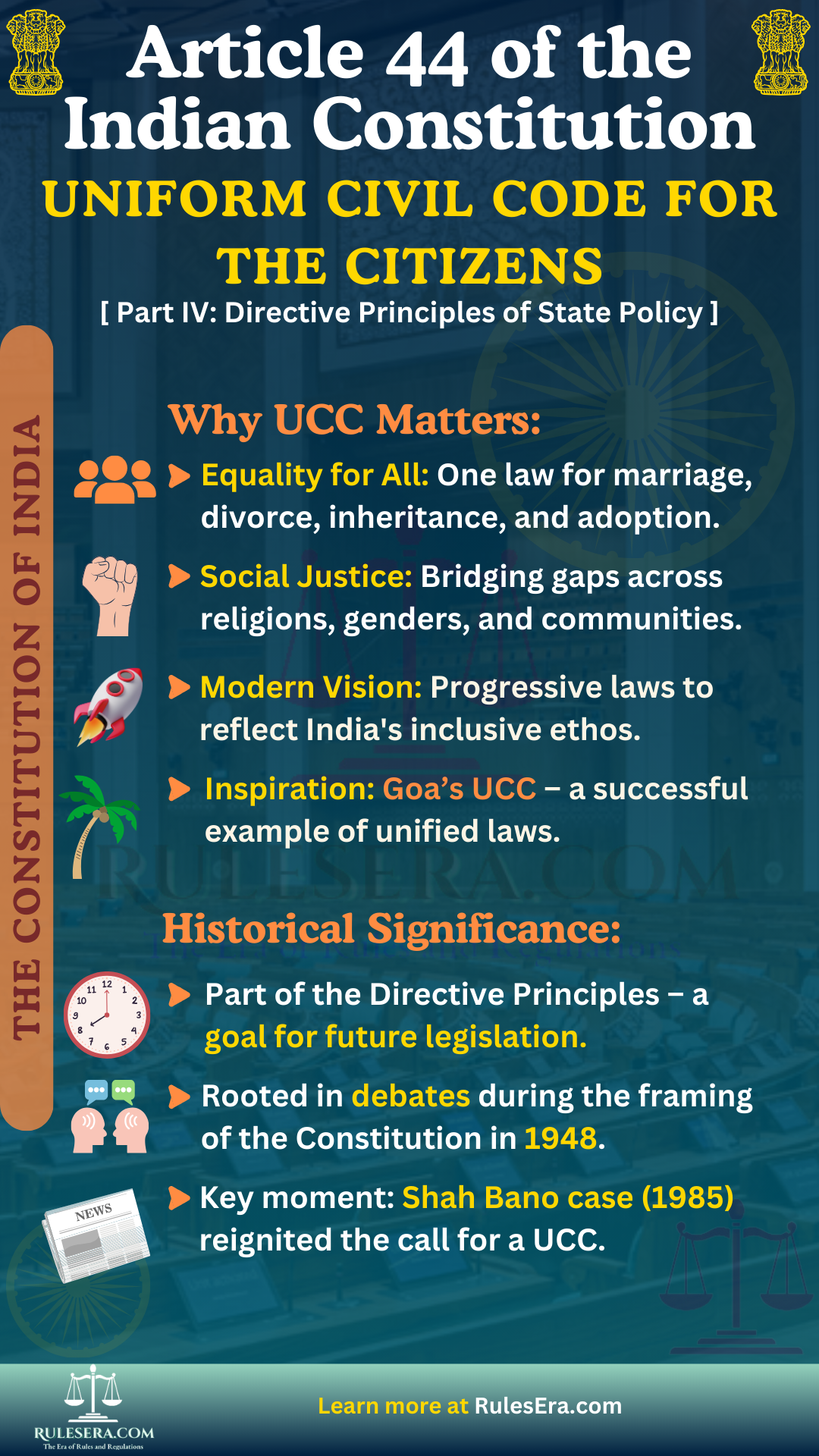Part IV: Directive Principles of State Policy
Article 44: Uniform civil code for the citizens

--- Original Article ---
The State shall endeavour to secure for the citizens a uniform civil code throughout the territory of India.
Explanation
Article 44 of the Constitution emphasizes the goal of a Uniform Civil Code (UCC), seeking to unify diverse personal laws into a common framework. This directive aims to ensure equality and justice among citizens, irrespective of religion, gender, or community.
State's Responsibility to Establish a Uniform Civil Code (UCC)
Article 44 mandates the State to strive for the establishment of a Uniform Civil Code across India. The objective is to unify personal laws, governing areas like marriage, divorce, inheritance, and adoption, under a common set of civil laws for all citizens.
Directive Principles - Non-Justiciable in Nature
As part of the Directive Principles of State Policy, Article 44 is not enforceable in courts but serves as a guide for future legislative actions aiming for legal uniformity in personal laws.
Historical Significance
The concept of a Uniform Civil Code dates back to the pre-independence era, where legal pluralism in personal laws prevailed. The framers of the Constitution introduced this provision to progressively unify personal laws, recognizing India’s diversity of traditions and beliefs.
Amendments and Legislative Changes
Although Article 44 has not been directly amended, reforms in personal laws—such as the Hindu Code Bills and changes in Muslim law—show gradual steps towards the unification of laws in certain areas.
Real-Life Examples
- Shah Bano Case (1985): The Supreme Court ruling in favor of providing maintenance to a divorced Muslim woman under secular law highlighted the need for a Uniform Civil Code, reigniting national debate on the issue.
- Goa's Uniform Civil Code: Goa already implements a Uniform Civil Code, known as the Goa Family Law, which governs personal matters like marriage, divorce, and succession for all citizens, regardless of religion.
Legislative History
Article 44 was introduced as Article 35 of the Draft Constitution and debated on November 23, 1948, before being incorporated into the final text of the Constitution.
Debates and Deliberations
The inclusion of Article 44 in the Constitution was a visionary goal, aiming for the gradual unification of personal laws. Although no specific amendments were made, its incorporation reflected a commitment to legal uniformity.
Frequently Asked Questions (FAQs):
The Uniform Civil Code (UCC) seeks to replace the diverse personal laws in India with a common set of civil laws that apply to all citizens, ensuring legal equality in matters like marriage, divorce, and inheritance.
Article 44 is significant because it represents the goal of legal uniformity across communities, which would promote equality, justice, and social harmony in India.